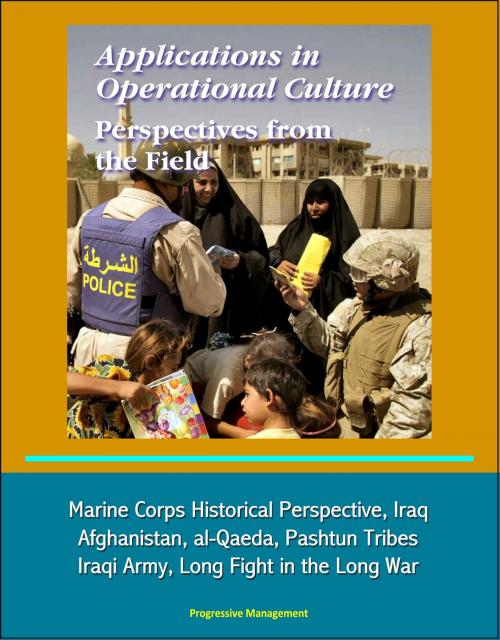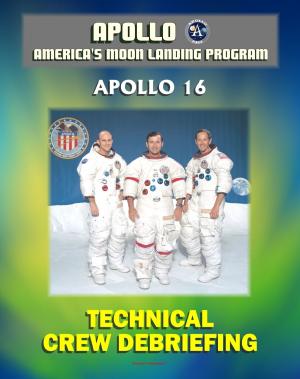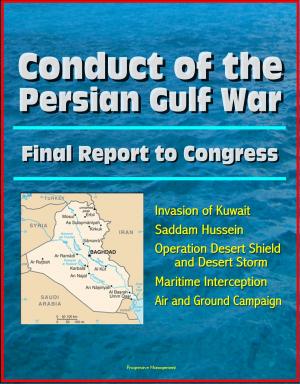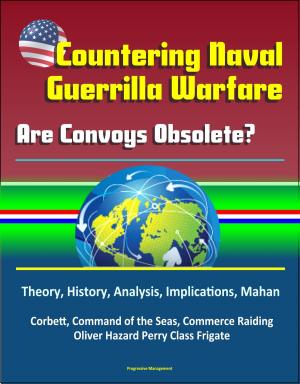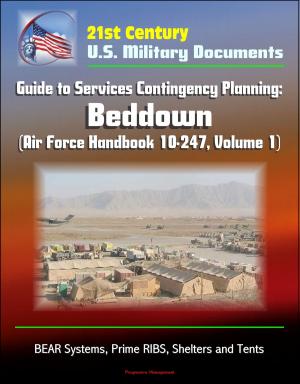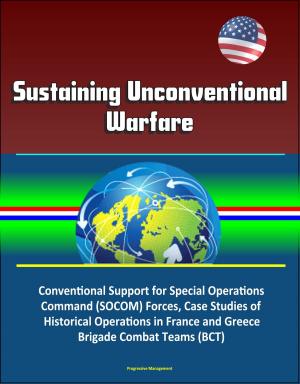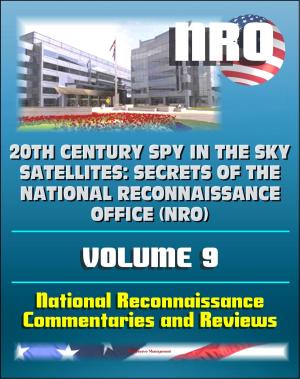Applications in Operational Culture: Perspectives from the Field - Marine Corps Historical Perspective, Iraq, Afghanistan, al-Qaeda, Pashtun Tribes, Iraqi Army, Long Fight in the Long War
Nonfiction, History, Military| Author: | Progressive Management | ISBN: | 9781310170829 |
| Publisher: | Progressive Management | Publication: | May 31, 2014 |
| Imprint: | Smashwords Edition | Language: | English |
| Author: | Progressive Management |
| ISBN: | 9781310170829 |
| Publisher: | Progressive Management |
| Publication: | May 31, 2014 |
| Imprint: | Smashwords Edition |
| Language: | English |
As the U.S. military has learned in Iraq and Afghanistan, working effectively with local populations is essential to operational success. In the past few years, all of the services have developed cultural education and training programs to prepare their members for operating overseas. To date, however, there has been no systematic effort to record and analyze the cultural lessons learned by these service members once they return from the field. Applications in Operational Culture, Perspectives from the Field presents six essays by experienced field-grade officers on the challenges, successes, and future warfighting problems of applying culture to military operations. The chapters in this book focus on a spectrum of issues relevant to today's Marines and other service members. These include essays on the cultural and practical difficulties of training the Iraqi army; understanding tribal factors in Afghanistan; questioning the applicability of Maslow's hierarchy in Iraqi culture; and developing a cultural training program for the Australian army. Drawing on cultural concepts developed in the companion text, Operational Culture for the Warfighter, the six contributors to this book turn theory into practice, evaluating the challenges of applying cultural principles to the realities of today's field environments.
Operational Culture and the Marine Corps: A Historical Perspective * Creating Sound Cultural Analyses for the Military * Lessons Learned * Planning for the 21st Century * Chapter One: Maslow is Non-Deployable: Modifying Maslow's Hierarchy for Contemporary Counterinsurgency * Major Jonathan Dunne, USMC * Statement of the Problem * Operational Culture Defined * Understanding Ourselves through Maslow * The Iraq Case: Reassessing Maslow * Discussion of Findings * Conclusion * Chapter Two: The Use of Cultural Studies in Military Operations: A Model for Assessing Values-Based Differences * Lieutenant Colonel Alejandro P. Briceno, USMC * Culture and Military Operations * Cultural Values Defined * Military Application of Cultural Intelligence * A Cultural Values Model * Applications of the Model to a Case Study: Kuwait * Discussion of Findings * Conclusion * Chapter Three: Developing the Iraqi Army: The Long Fight in the Long War * Major John F. Bilas, USMC * Methodology * Background Information * The Surge - Operation Fardh-Al Qanoon and the Awakening * How the Surge Affected Logistics, Personnel, and Pay * Iraqi Brigade (1st BDE, 2d Div) Progress in Mosul, Iraq * Discussion * Recommendations * Conclusion * Chapter Four: The Way Ahead: Reclaiming the Pashtun Tribes through Joint Tribal Engagement * Major Randall S. Hoffman, USMC * Afghanistan at the Crossroads * Tribal Engagement: The Center of Gravity * The Pashtun: A House Divided * Reengaging the Pashtuns to Strengthen Kabul's Legitimacy * Breakdown and Relationship of the Joint Teams * Conclusion * Chapter Five: The Application of Cultural Military Education for 2025 * Major Robert T. Castro, USMC * Cultural Anthropology and Irregular Warfare Operations * Getting Culture on Board * The Reinvention of the Wheel: Culture in Past Military Operations * Educating for the Future * Conclusion * Chapter Six: Operational Culture: Is the Australian Army Driving the Train or Left Standing at the Station? * By Lieutenant Colonel Steven Brain, Australian Army * Defining Culture * Culture and Future Warfare * The Australian Army: Operational Culture in Education and Training * Conclusion * Conclusion * Cultural Role of Time * Military Personnel * Cultural Reality of the Area of Operations * Cultural Challenges of our Own Military
As the U.S. military has learned in Iraq and Afghanistan, working effectively with local populations is essential to operational success. In the past few years, all of the services have developed cultural education and training programs to prepare their members for operating overseas. To date, however, there has been no systematic effort to record and analyze the cultural lessons learned by these service members once they return from the field. Applications in Operational Culture, Perspectives from the Field presents six essays by experienced field-grade officers on the challenges, successes, and future warfighting problems of applying culture to military operations. The chapters in this book focus on a spectrum of issues relevant to today's Marines and other service members. These include essays on the cultural and practical difficulties of training the Iraqi army; understanding tribal factors in Afghanistan; questioning the applicability of Maslow's hierarchy in Iraqi culture; and developing a cultural training program for the Australian army. Drawing on cultural concepts developed in the companion text, Operational Culture for the Warfighter, the six contributors to this book turn theory into practice, evaluating the challenges of applying cultural principles to the realities of today's field environments.
Operational Culture and the Marine Corps: A Historical Perspective * Creating Sound Cultural Analyses for the Military * Lessons Learned * Planning for the 21st Century * Chapter One: Maslow is Non-Deployable: Modifying Maslow's Hierarchy for Contemporary Counterinsurgency * Major Jonathan Dunne, USMC * Statement of the Problem * Operational Culture Defined * Understanding Ourselves through Maslow * The Iraq Case: Reassessing Maslow * Discussion of Findings * Conclusion * Chapter Two: The Use of Cultural Studies in Military Operations: A Model for Assessing Values-Based Differences * Lieutenant Colonel Alejandro P. Briceno, USMC * Culture and Military Operations * Cultural Values Defined * Military Application of Cultural Intelligence * A Cultural Values Model * Applications of the Model to a Case Study: Kuwait * Discussion of Findings * Conclusion * Chapter Three: Developing the Iraqi Army: The Long Fight in the Long War * Major John F. Bilas, USMC * Methodology * Background Information * The Surge - Operation Fardh-Al Qanoon and the Awakening * How the Surge Affected Logistics, Personnel, and Pay * Iraqi Brigade (1st BDE, 2d Div) Progress in Mosul, Iraq * Discussion * Recommendations * Conclusion * Chapter Four: The Way Ahead: Reclaiming the Pashtun Tribes through Joint Tribal Engagement * Major Randall S. Hoffman, USMC * Afghanistan at the Crossroads * Tribal Engagement: The Center of Gravity * The Pashtun: A House Divided * Reengaging the Pashtuns to Strengthen Kabul's Legitimacy * Breakdown and Relationship of the Joint Teams * Conclusion * Chapter Five: The Application of Cultural Military Education for 2025 * Major Robert T. Castro, USMC * Cultural Anthropology and Irregular Warfare Operations * Getting Culture on Board * The Reinvention of the Wheel: Culture in Past Military Operations * Educating for the Future * Conclusion * Chapter Six: Operational Culture: Is the Australian Army Driving the Train or Left Standing at the Station? * By Lieutenant Colonel Steven Brain, Australian Army * Defining Culture * Culture and Future Warfare * The Australian Army: Operational Culture in Education and Training * Conclusion * Conclusion * Cultural Role of Time * Military Personnel * Cultural Reality of the Area of Operations * Cultural Challenges of our Own Military
